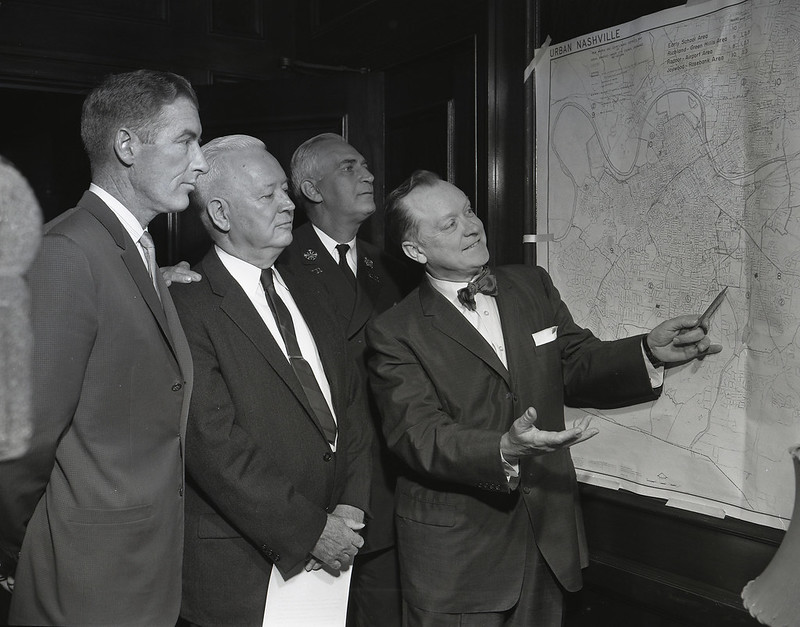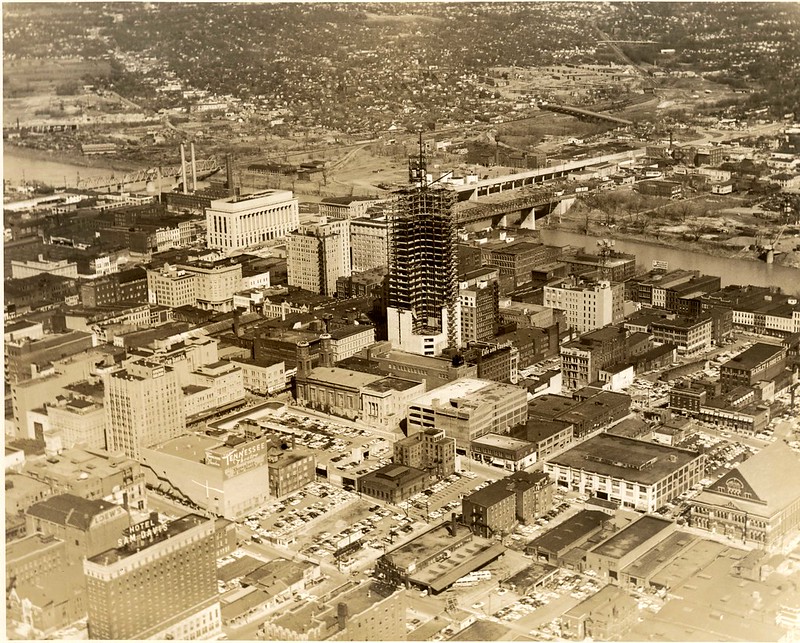
Discover the Origins and Evolution of Our City with the Metro Archives at NPL

Discover the Origins and Evolution of Our City with the Metro Archives at NPL
In 1779, prominent explorers James Robertson and John Donelson led an expedition that would result in the founding of Fort Nashborough. Because of its proximity to the Cumberland River, the site would thrive as a trading port and later a railway stop, eventually growing into a new settlement that we today call Nashville.
Nearly 200 years later, in 1963, the governments of the City of Nashville and Davidson County combined their territories and resources to form the Metropolitan Government of Nashville and Davidson County. Today, the Metro Government continues to serve the people of Nashville and Davidson County via the Mayor’s Office, the Metro Council, and the various departments and agencies that make up our city’s government.
For nearly 250 years, Nashville has thrived, even as it has evolved to meet the times. From the rise of Music Row to the Civil Rights Movement, from more than a few natural disasters to the weathering of multiple wars, Nashville has a lot of history.
At Nashville Public Library (NPL), that history is alive and well in the Metro Archives. And since October is National Archives Month, now’s the perfect time to discover what this treasure trove of Nashville’s heritage is all about.

The Metro Archives is a storehouse for the various documents, maps, photographs, archival footage, and other artifacts from nearly 250 years of Nashville. Its mission is to assess, collect, organize, preserve, and provide access to the more than 5 million items that make up the Archives’ collection.
At its heart, Archives is about preserving the past to help shape the future.
“We get all kinds of folks who come in to use the Archives — archivists, researchers, genealogists, folks in academia, you name it,” said Ken Fieth, the Metropolitan Government Archivist and head of the Metro Archives. “What they all have in common is that they’re studying what happened in Nashville in years past to find information they can use to make decisions or contextualize information today. That’s what we’re all about here.”
The short answer is: a little bit of everything. A pic of Minnie Pearl at the Opry in 1950? You’ll find it here. Footage of Tom Tichenor’s famous puppet shows? It’s ready to stream now. Blueprints for renovations and restoration projects around the Parthenon? Yep — we’ve got that, too.
For the visually curious, the Archives houses more than 70,000 photos, chronicling everything from baseball teams to celebrities to festivals. There’s also a healthy selection of maps that span the founding of Nashville to the modern day.
For the genealogists out there, Archives has cataloged an extensive collection of birth certificates, as well as indexes of marriages and deaths dating back to the late 1700s. Archives can also help you obtain a certified copy of your marriage certificate, if you were married in Davidson County before 2003.
If you want to learn more about how Nashville has evolved, what Metro Government has done over the years, or what Nashville was like a century ago, Archives possesses documents ranging from court records and council meeting minutes to building plans and more.
And for the film buffs out there, the Archives’ Audiovisual Heritage Center (AVHC) houses a collection of more than 2,000 hours of historic film covering a wide range of topics, from military parades to a day at Opryland to footage of street fairs and festivals.
Metro Archives is located on the third floor of NPL’s Main Library, just beside Library Services for the Deaf and Hard of Hearing. The Archives is open 9 AM to 6 PM, Monday through Saturday, and 2 PM to 5 PM on Sunday.
While anyone is welcome to stop by and browse, the Archives staff asks that if you have specific records in mind or a particular topic you want to research, please send a message in advance so that they can prepare for your visit. You can also view the Archives’ most frequently requested materials to get an idea of what you might need to conduct your research.
If you can’t make it, or just want to check out some of the things you can find at Archives before stopping by, many of our photos are available to view online, while the AVHC has uploaded much of its historic footage on Vimeo.
Finally, if you want to see what Archives is up to and the cool new things we’re adding to our collections, be sure to like and follow us on Facebook.
And, please — don’t be intimidated by the large volume of materials available in the Archives. Our staff are experts at navigating indexes and finding specific records. They are ready (and eager) to assist you in your search, no matter what you’re looking for!